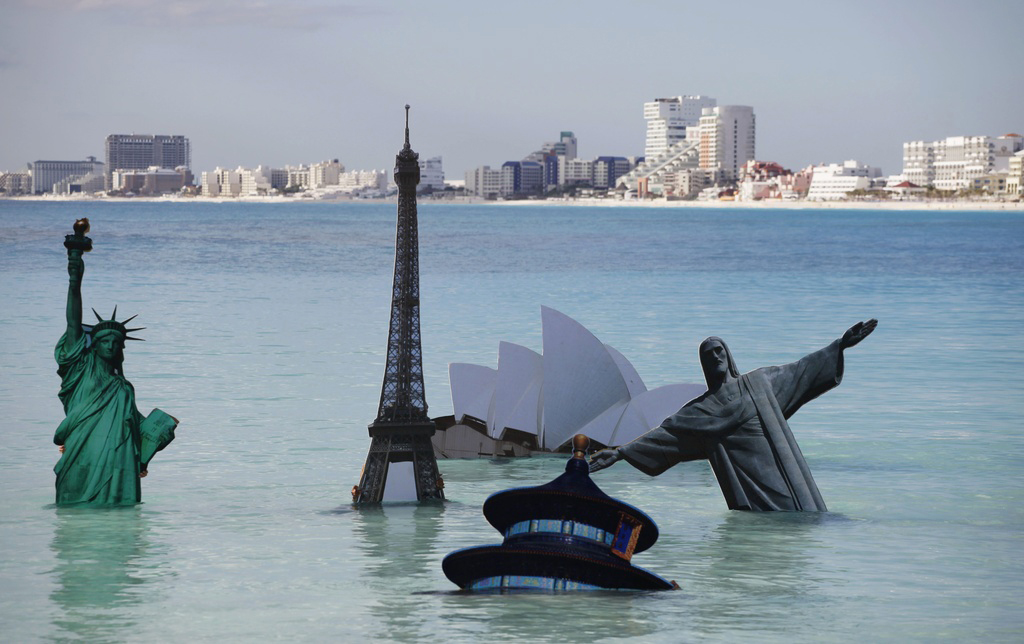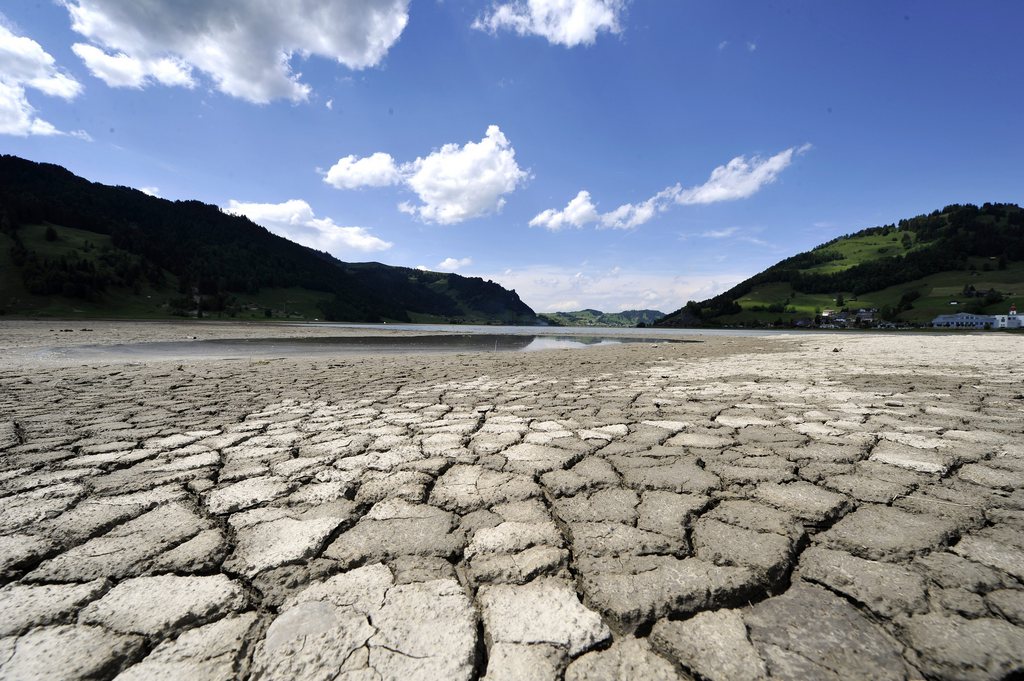Climate deal ushers in “new era of cooperation”

United Nations climate talks in Cancun have produced a new deal to combat global warming.
Switzerland joined over 190 nations in adopting the two-part climate agreement but described it as a “compromise” that failed to reach consensus on all points.
The agreement, brokered by Mexico, includes the creation of a Green Climate Fund and steps to help share clean technologies such as wind and solar power, protect tropical forests and assist poor nations adapt to impacts such as floods, droughts and rising sea levels.
“It is approved,” said the president of the conference, Mexican Foreign Secretary
Patricia Espinosa, chairing a session of the United Nations Framework Convention on Climate Change.
She said the “historic” deal signalled “a new era in international cooperation in climate change”, to the applause of delegates.
The decision was formally endorsed at a final session early on Saturday, after non-stop negotiations among delegations through Thursday and Friday. It passed despite solitary opposition from Bolivia.
The South American nation said it was opposed to the deal as it represented a “step backwards” and would result in a “weaker, less demanding, regime for developed countries which are responsible for global warming”.
To boos from the plenary session, Bolivia took to the floor to say it was an “unhappy conclusion” to the meeting. Mexico said Bolivia’s objections were “duly reflected in the conference records”.
Bolivia was criticised during the week for its hardline approach, the toughest of any nation at the talks, demanding that rich nations halve their greenhouse gas emissions by 2017 from 1990 levels – far beyond the demands of other nations.
A new fund
It was the first time in three years that the 193-nation conference had adopted any climate action, restoring faith in the UN process after failed talks in Copenhagen in 2009.
The Cancun agreement binds to the UN climate process those pledges for action made in the resulting Copenhagen Accord. But it does not require developed countries to take on binding cuts beyond the Kyoto Protocol, which runs out in 2012.
Delegates put off the Kyoto issue until a follow-up summit in South Africa in 2011, but states party to the Protocol will be obliged to intensify their efforts to reduce greenhouse gas emissions.
Switzerland’s commitment for a second Kyoto period from 2013- 2020 is currently before the Swiss parliament.
In creating a new Global Climate Fund, richer nations have promised $100 billion a year by 2020, but the Cancun decision does not identify specific sources of financing. The fund will be used to help developing nations obtain clean technology and adapt to climate change.
Switzerland noted that it helped push through with the climate fund with a proposal on how it should be organised, and through its staging of the Geneva Dialogue on Climate Finance earlier this year.
Paradigm shift
Countries also decided to create a framework of measures to adapt to climate change with the aim of mitigating its consequences, in particular in the very vulnerable developing countries.
Temperatures should not rise more than two degrees Celsius above pre-industrial levels. The deal states that nations bear collective responsibility for climate change, according to their level of development.
Switzerland said a package of measures relating to climate-damaging deforestation in forests in developing countries was an “important step” which should help cut global greenhouse gas emissions by around one fifth.
The deal also takes a clear position on climate change, saying it is one of the greatest challenges facing humanity and calling for a paradigm shift to enable the development of a climate-friendly economy and society.
“Twenty-four hours ago we wouldn’t have believed this would be possible,” Patrick Hofstetter, spokesman for the Swiss Climate Alliance, told swissinfo.ch outside the plenary session. “In the end we are glad that we got this outcome. But we have to be honest that it’s just one important step.”
On a positive note, no issues were left out of the Cancun agreement, but the deal was problematic as most of the processes decided had no clear end date nor was it obvious how they would evolve, he said.
“So it’s very open whether we will have something in one, three or five years. This is a big problem so it needs a lot of work next year in order to finalise everything in South Africa.”
The UN Climate Change Conference was held in Cancun, Mexico, from November 29-December 10. The negotiating process revolved around sessions of the signatory parties to the UN Framework Convention on Climate Change (UNFCCC), which meet annually to review how the convention is being implemented.
Talks included the issues of adaptation, reducing greenhouse gas emissions, climate finance, and the future of the Kyoto Protocol, which expires in 2012.

In compliance with the JTI standards
More: SWI swissinfo.ch certified by the Journalism Trust Initiative














You can find an overview of ongoing debates with our journalists here . Please join us!
If you want to start a conversation about a topic raised in this article or want to report factual errors, email us at english@swissinfo.ch.